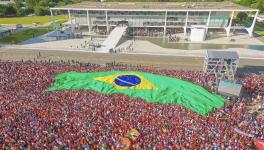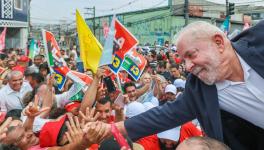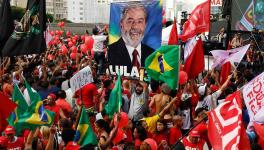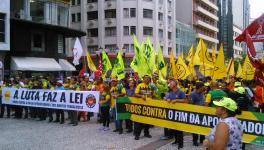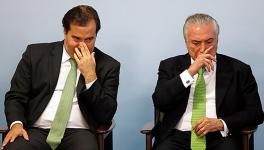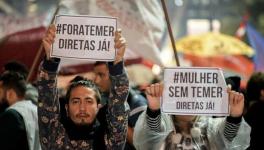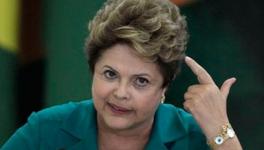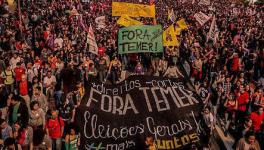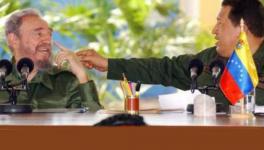Constitutional Coup in Brazil: President Dilma Loses Impeachment Vote
The Brazilian Chamber of Deputies (or the lower house of the Congress) voted on Sunday, 17th April with more than the required two-third majority for the impeachment motion against President Dilma. It will now go to the Senate. The Senate is likely to start the process of impeachment, in which case she will have to hand over the presidency to the vice president, Michel Temer, of PSDB, now a part of the opposition. The Senate needs to pass the impeachment by only a simple majority for Dilma to be successfully impeached and lose her presidency.
Why is this a constitutional coup? The charge against Dilma is not corruption, as the campaign for her removal claims, but “manipulating” the deficit figures or window-dressing the Governmental accounts before the elections. Something every government does routinely. This is not a charge for impeaching a sitting president elected by a popular vote, let alone by legislators who are themselves neck deep in corruption. The key figure in the opposition campaign, and the President of the Chamber of Deputies, Eduardo Cunha, has been named in various corruption scandals including the Petrobras one, and has been exposed as holder of many secret Swiss bank accounts. His name also figures in the Panama papers as owning secret companies and accounts there. A number of senior opposition figures have also been enmeshed in the emerging Petrobas scandals in what is known as Operation Lava-Jato (car wash). This effort, led by a Federal Judge Sergio Moro, has gained huge prominence, with its indictment of powerful figures in business, officials and politicians.
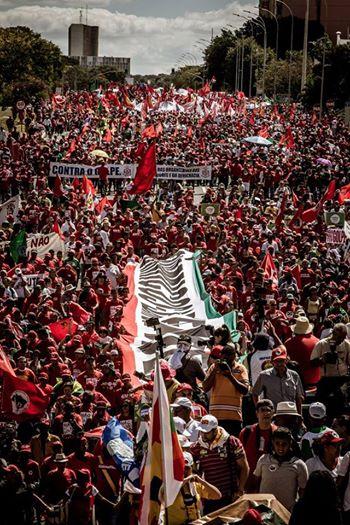
President Dilma being impeached when her name does not figure anywhere in either the Panama Papers or the Operation Lava-Jato is quite inexplicable for non Brazilians. Neither has Lula's name appeared in the Panama Papers, nor has any evidence been found regarding his supposed ownership of a beach-front property that Judge Moro is investigating. Lula still remains as the most popular figure in Brazil and likely to win in a future presidential elections, provided he is allowed to stand.
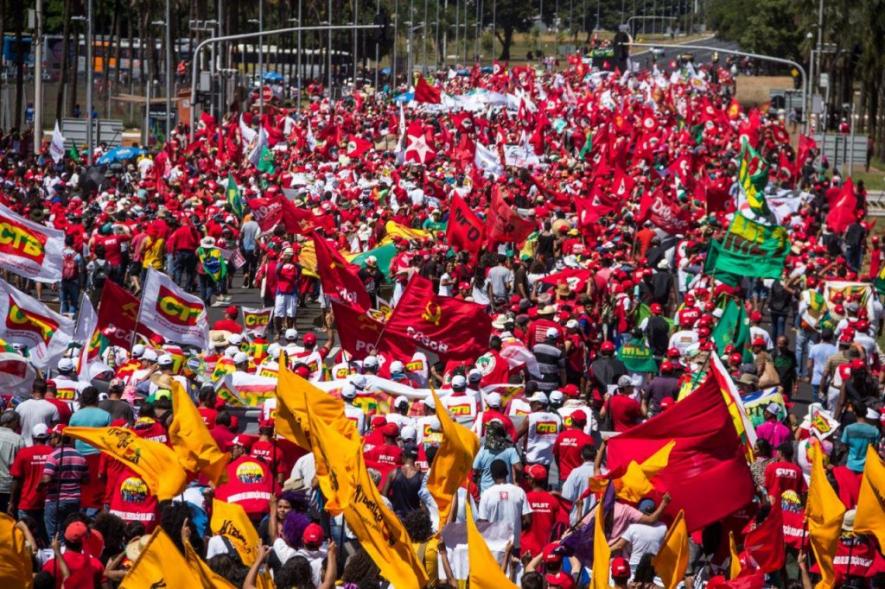
Earlier, the right in Latin America, backed by the US has overturned popular governments through military coups. This was the series of US backed coups that overthrew elected governments in the 50's, 60's and 70's, including in Brazil. After its failure to overthrow President Chavez in Venezuela in 2002 through such a coup, the US and the right has changed tack and started the new era of constitutional coups. The first was Honduras, next was Paraguay and now it is Brazil. The continuity of the two can be seen in the votes by some of the deputies. The Guardian reports, “...Jair Bolsonaro, the far-right deputy from Rio de Janeiro, dedicated his yes vote to Carlos Brilhante Ustra, the colonel who headed the Doi-Codi torture unit during the dictatorship era. Rousseff, a former guerrilla, was among those tortured... Eduardo Bolsonaro, his son and also a deputy, used his time at the microphone to honour the general responsible for the military coup in 1964.”
The key to this crisis lies in the failure of the policy of accommodation followed by the Workers Party – PT – which has won four successive elections in Brazil. As long as the economy was growing and PT had wide popularity, important sections of the old elite – the big capital and landed interests – did not want to challenge it. It is the economic crisis of 2008-09 followed by the crash of commodity prices in the world market that has seen Brazil's GDP contract. The collapse of the oil prices, the slowing down of the Chinese economy which was a major consumer of Brazil's minerals and agricultural products has hit Brazil hard.
It is the economic crisis, combined with an anti-incumbency climate emboldened the right in Brazil. The battle was led by O Globo, the main media house in Brazil that controls 70% of the media in Brazil. An ally emerged in an activist judiciary, created by PT itself, which seems to have veered much more to the right, targeting PT and even Lula.
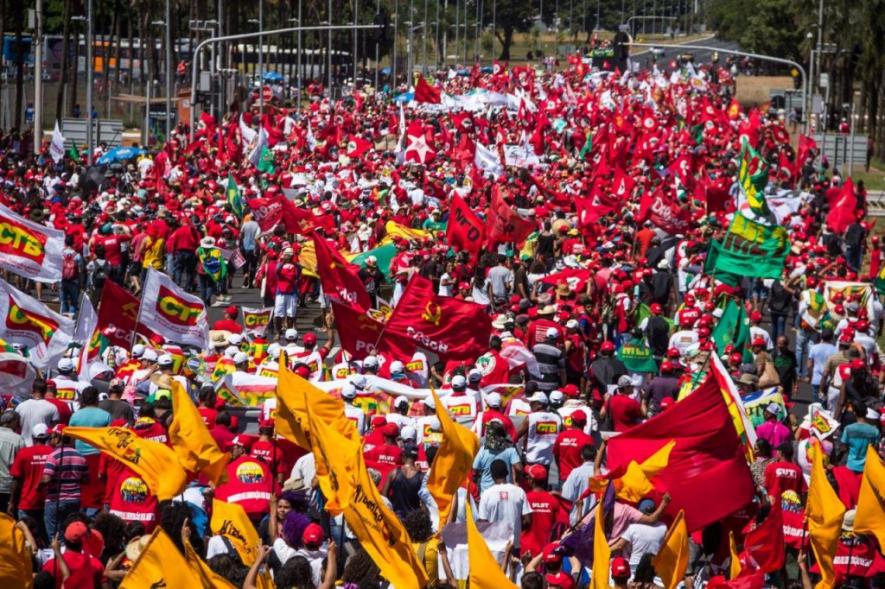
The PT has made significant changes in the life of the poor; Bolsa Familia with cash transfers to the poor, reserving seats in higher education for poorer sections and students from government schools, have made a significant difference. Nevertheless, Brazil continues to be one of the most unequal countries in the world. The social support programs such as Bolsa Familia depended on the surplus from Brazil exporting primary products and not from a structural change in Brazil.
While some have argued that PT should have plotted course much more to the left and breaking the power of the elite, it was hamstrung by not having a majority in either the Chamber of Deputies or the Senate. While it captured the popular vote, it made alliances with other political formations that for managing the legislatures that were very much a part of the existing Brazilian political system. And that was the weakness of the PT agenda.
The right in Brazil found a resonance among the upper middle class and the white Brazilian youth who see all this social engineering as a denial of their “merit”. With the crisis in the economy, it is they who have taken the lead in the campaign against PT and Dilma. The right feels that it has enough support on the ground for essentially a constitutional coup – defeating PT in the two chambers – and achieve what they could not achieve through popular votes. Dilma's loss of popular support – her approval rating had dropped to 10% in recent days – greatly emboldened the deputies in the Congress to go ahead with their coup against Dilma.
Inevitably, the struggle of the right and the left in Brazil will now be fought on various platforms including on the streets. The Popular Front in Brazil – a combination of left and popular movements in Brazil – has issued an urgent communique stating, “We don’t accept the coup against democracy and our rights! We will defeat the coup on the streets!...The conservative and reactionary political and economic forces that promoted this farce aim to annihilate the labor and social rights of the Brazilian people. This sector is made of businesses, political actors such as Eduardo Cunha (who is accused in the Supreme Court for the crime of corruption), parties that were defeated in the polls like the PSDB, and foreign forces that are interested in plundering our resources and privatizing our state companies (such as Petrobras, where they intend to take hold of the multinational Pre-Salt area).”
In an interview, Joan Pedro Stedile, the leader of the MST (Landless Labour Union), the most important popular movement in Brazil, while talking about the constitutional coup against Dilma, also talks about the need for new alternatives. He recognises that the path of accommodation with big capital – the path followed by PT – or the more radical Chavez project in Venezuela have both entered into different forms of crisis. Therefore the need for peoples movements in Latin America to build consciousness and work out alternative models. That is the challenge before the people.
Get the latest reports & analysis with people's perspective on Protests, movements & deep analytical videos, discussions of the current affairs in your Telegram app. Subscribe to NewsClick's Telegram channel & get Real-Time updates on stories, as they get published on our website.










